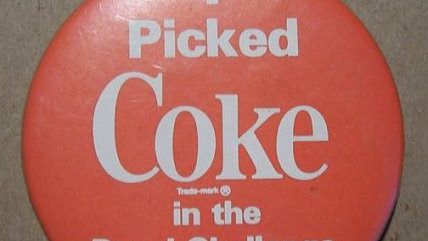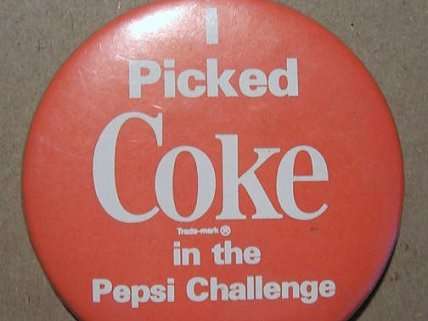How Food Fared at the Voting Booth
Tuesday was a mixed bag for food policy.


One party beat up another party on Tuesday. At some point in the future, the party that took a beating will get its revenge. And then the process will repeat itself.
For those who (like me) don't care much for electoral politics, food-policy ballot measures around the country helped make Tuesday an interesting mixed bag.
Notably, there were several important victories for food freedom on Tuesday.
Voters in Colorado and Oregon rejected mandatory GMO-labeling laws in their respective states. And voters in San Francisco rejected a soda tax.
In addition to rebuffing efforts to pile still more regulations on consumers and the food industry, voters elsewhere helped shrink the existing burden.
Residents in the Nashville area and in nearly two-dozen other Tennessee counties voted to loosen the state's ban on the sale of wine in grocery stores, a topic I wrote about in September.
But not all of Tuesday's food news is good, as actions taken by voters elsewhere will serve to punish consumers, low-income residents, grocers, and food companies alike.
Unlike the city across the bay, Berkeley voters embraced a soda tax there. It's the first such tax in the nation.
Beverage industry supporters responded to the new tax by noting Berkeley's unique place in the American ideological spectrum.
"The anti-soda activists picked the lowest hanging piece of fruit on their quest for discriminatory taxes after years of trying and failing in states and cities across the country," said Americans for Food & Beverage Choice, in a statement issued after the Berkeley vote.
There's no doubt that Berkeley's politics make it an outlier. But that still doesn't mean it's predictable or even likely that liberal voters will suddenly embrace soda taxes. After all, voters with similar leanings in San Francisco and elsewhere have found such taxes to be a bad idea.
"Soda taxes should not be an issue of left versus right, nor of progressives versus conservatives," I wrote in a Berkeleyside op-ed last month. "In November 2012, for example, voters in the liberal-friendly enclaves of nearby Richmond, CA, and El Monte, in southern California, voted to reject soda taxes very similar to those proposed in Berkeley and San Francisco."
In fact, I think the Berkeley law may unite people across the country against such taxes, playing a similar role to the one New York City's absurd, widely reviled soda ban played earlier this decade.
"I suspect the mistake that Berkeley voters made in passing a soda tax will be a lesson to voters and legislators in cities around the country," I told Politico earlier this week. "Research and experience demonstrate that taxes like those Berkeley adopted don't make people healthier. Like lotteries, taxes like these put more burden on low-income residents."
That's one reason no city followed former New York City Mayor Michael Bloomberg's lead in adopting a soda ban. So I think Berkeley ends at Berkeley—perhaps because of (rather than despite) the largely toxic former mayor's support for the Berkeley initiative and promised support for future initiatives in other cities.
Tuesday's bad news wasn't confined to Berkeley, however.
Elsewhere, residents in Hawaii's Maui County voted to impose an indefinite ban on planting GMO crops there. The ban passed by a slim margin.
"It's the triumph of the people over the corporations," said Mark Sheehan, spokesman for the group that pushed the Maui measure, in the wake of the vote.
Sheehan's only partially correct. It's not just a triumph of people over corporations. It's also a triumph of 50.2 percent of county voters over Maui's farmers, grocers, and consumers.
A spokeswoman for Dow AgriSciences indicated the company intends to sue Maui.
That's the proper sentiment. And while that avenue might not be available to those who've been harmed by passage of Berkeley's soda tax—at least not until a creative lawyer figures out a way to justify such a suit—the good sense of voters in Colorado, Oregon, and San Francisco means that Tuesday may be as well remembered for what went right as for what did not.
Editor's Note: As of February 29, 2024, commenting privileges on reason.com posts are limited to Reason Plus subscribers. Past commenters are grandfathered in for a temporary period. Subscribe here to preserve your ability to comment. Your Reason Plus subscription also gives you an ad-free version of reason.com, along with full access to the digital edition and archives of Reason magazine. We request that comments be civil and on-topic. We do not moderate or assume any responsibility for comments, which are owned by the readers who post them. Comments do not represent the views of reason.com or Reason Foundation. We reserve the right to delete any comment and ban commenters for any reason at any time. Comments may only be edited within 5 minutes of posting. Report abuses.
Please to post comments


I just prepared enchiladas for the Ohio State game tonight with pork,beef and full fat cheese,and veggies too.Some sour cream and some Sam Adams,a cigar.I'm ready.I also state I am a Browns fan!Eat what you want and enjoy.
I hope to God you didn't use any salt, otherwise you will drop dead within the fortnight.
Go Bucks!
A nice lady brought homemade cookies to the field for us after the Jets-Chiefs game (Warrior Football Club). Our Jets had gotten mercy-ruled by the Chiefs, 19-0.
Chocolate chip w colored chocolate sprinkles, if you care.
Please repeat that menu for the next Redskins game, whether you watch it or not.
You know I never use much salt,I like herbs and spices.I don't care about the so called 'health risks'.I'm 6',175 and the last time I was sick I had the flu in 1995.I credit a diet of fresh cooking of all sorts and and steady supply of Sam Adams and Guinness.A hand wrapped Churchill is icing on the cake.Although a good red wine or port now and then works well.
I picked up some Victory Storm Kings for the game.
never had that,bet it's good.I also like Samuel Smith's oatmaea stout
Yeah,I'm a big fan of Victory beers. Love Samuel Smith's Oatmeal Stout as well as their Nut Brown. Another Oatmeal Stout I like is The Poet by New Holland.
steady supply of Sam Adams and Guinness
Ok, we can be friends.
Say Wuuut?
http://hotair.com/archives/201.....president/
"Unlike the city across the bay, Berkeley voters embraced a soda tax there."
As Berkeley goes, so goes Madison and Boston.
And pretty much nowhere else.
I wouldn't give up on Minneapolis and Seattle just yet...
And something tells me that the farmers of Maui County will become impoverished by more than a slim margin. No GMO crops means more pesticides, more herbicides, lower yields, and more labor.I'd argue that they would move to escape such stupidity, but you can't just pick up your land and move it to somewhere more favorable. So they'll stay, and they'll become poorer for it. And still the 50.2% of the people who will be directly responsible for the impoverishment of the farmers of Maui County will find a way to blame TEH KKKORPORASHUNZ!
If those rapists would just stop poisoning Mother Gaia, we could all live in a (properly regulated) utopia of peace and love and un-icky things.
Well, those of us that survived the mass starvation, anyway!
No, fruit is next.
Minneapolis also passed its restaurant alcohol restriction repeal that you wrote about here. Easily.
indefinite ban on planting GMO crops there.
So, no crop farming then?
just weeds
Didn't the Berkeley fight include anything about disparate impact on minorities?
The solution is simple: Distributors stop delivering soda of any kind to Berkley. We'll see how long that shit lasts.
A soda ban in Berkeley? Absurd.
The university is loaded with computer science majors, math majors, physics majors, and other assorted geeks and nerds, who LIVE on giant jugs of Coke and Diet Coke. STEM education will grind to a halt there without the power of caffeine.
Tax, not ban. Still absurd. You know that some 20-year-old is going to get caught smuggling in a truckload of Mountain Dew from Oakland to avoid the artificial markup and get the roughhouse treatment from police.
At which point every economic illiterate will be aghast and opine about how awful capitalist police states are.